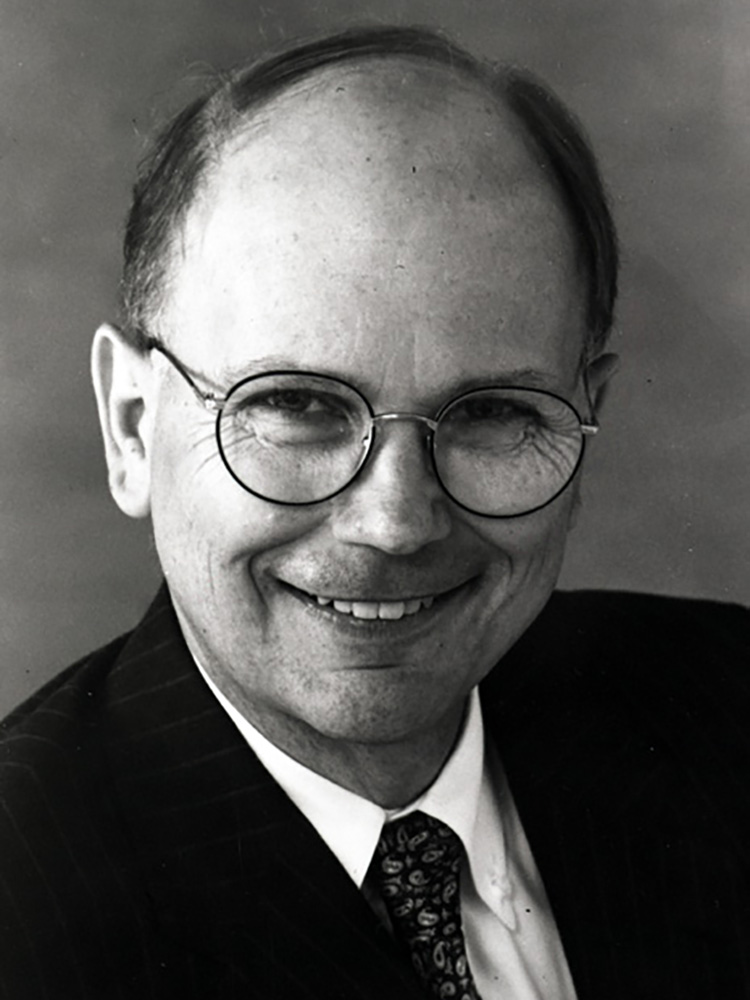
Chancellorship Dates
February 1, 1996 - January 1, 2000
DEGREES
- B.A., music (with honors), University of Texas at Austin, 1961
- M.A., music, University of Texas at Austin, 1964
- Ph.D., musical arts, University of Michigan, 1967
BORN
April 3, 1939 - Colorado City, Texas
SOURCES
James Moeser became the eighteenth chancellor of the University of Nebraska-Lincoln, where he held the rank of professor of music, on February 1, 1996. At Nebraska, Moeser promoted an ambitious agenda.
Born and reared in Texas, Moeser earned a bachelor of music degree with honors (1961) and a master's of music (1964) from the University of Texas at Austin, completed advanced study in Berlin and Paris under a Fulbright grant, and earned a doctor of musical arts at the University of Michigan (1967). He has an international reputation as a concert organist and actively concertized until 1993. He is a past president of the American Guild of Organists, was AGO vice president from 1986 to 1990 and chaired three of AGO's national pedagogy conferences. He has served as a consultant to numerous churches and universities.
Moeser began his academic career in 1966 at the University of Kansas as an assistant professor and chairman of the department of organ. He was named Dean of the School of Fine Arts at KU and in 1984, was named Althaus Distinguished Professor of Organ. In 1986, Dr. Moeser was appointed Dean of the College of Arts and Architecture at The Pennsylvania State University and was also executive director of University Arts Services in charge of Penn Stateπs cultural programs. In 1992 he became Vice President for Academic Affairs and Provost of the University of South Carolina.
As chancellor, he strengthened undergraduate education by increasing the rigor of Nebraska's undergraduate curriculum while simultaneously improving the university's recruitment and retention of students. He was particularly interested in expanding the Honors Program through more course offerings, enhanced scholarship opportunities and a residential learning environment.
He worked to build on Nebraska's strengths in research and graduate studies in order to meet the needs of Nebraska and the nation. He believed that excellence is best built upon existing strengths or in responding to special opportunities. Toward that end, he is directed a campuswide initiative to match existing strengths with federal funding opportunities with the goal to more than double the amount of federally sponsored research.
Moeser also promoted a campus culture that encouraged the growth and development of students' ethical and value systems. This concern has grew into a larger consideration of the campus culture itself and an ongoing commitment to diversity in culture, national origin and gender. He is a signatory of the 1999 Arizona Accords, calling for sportsmanship and ethics in athletics.
During his tenure, the university received the three largest gifts ever given to the University of Nebraska at the time. These gifts—$29.9 million from the W.E. Barkley Trust to support special education programs; $32.5 million to establish the J.D. Edwards Honors Program in Computer Science and Management and to establish the Esther M. Kauffman Academic Residential Center; and $125 million from the Mildred Topp Othmer estate to support faculty and facilities in chemical engineering and augment 24 named or endowed professorships—represented a significant step in helping shape the future of the university. In addition, the Hixson-Lied College of Fine and Performing Arts, named for an alumnus (Ernst Lied) and the trustee of his estate (Christina Hixson), became the first named or endowed fine and performing arts college at a public university in the nation in January 2000 following an $18 million gift to the college.